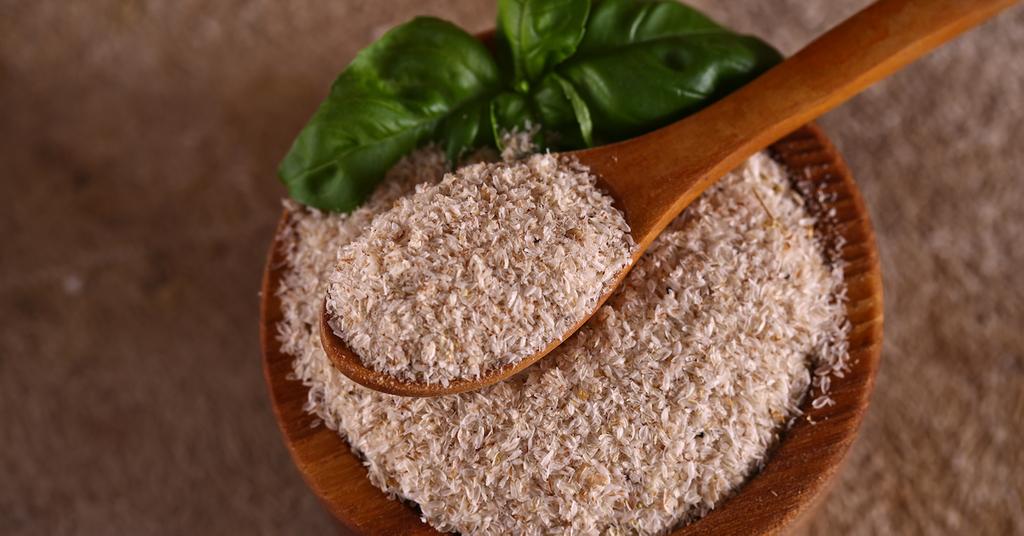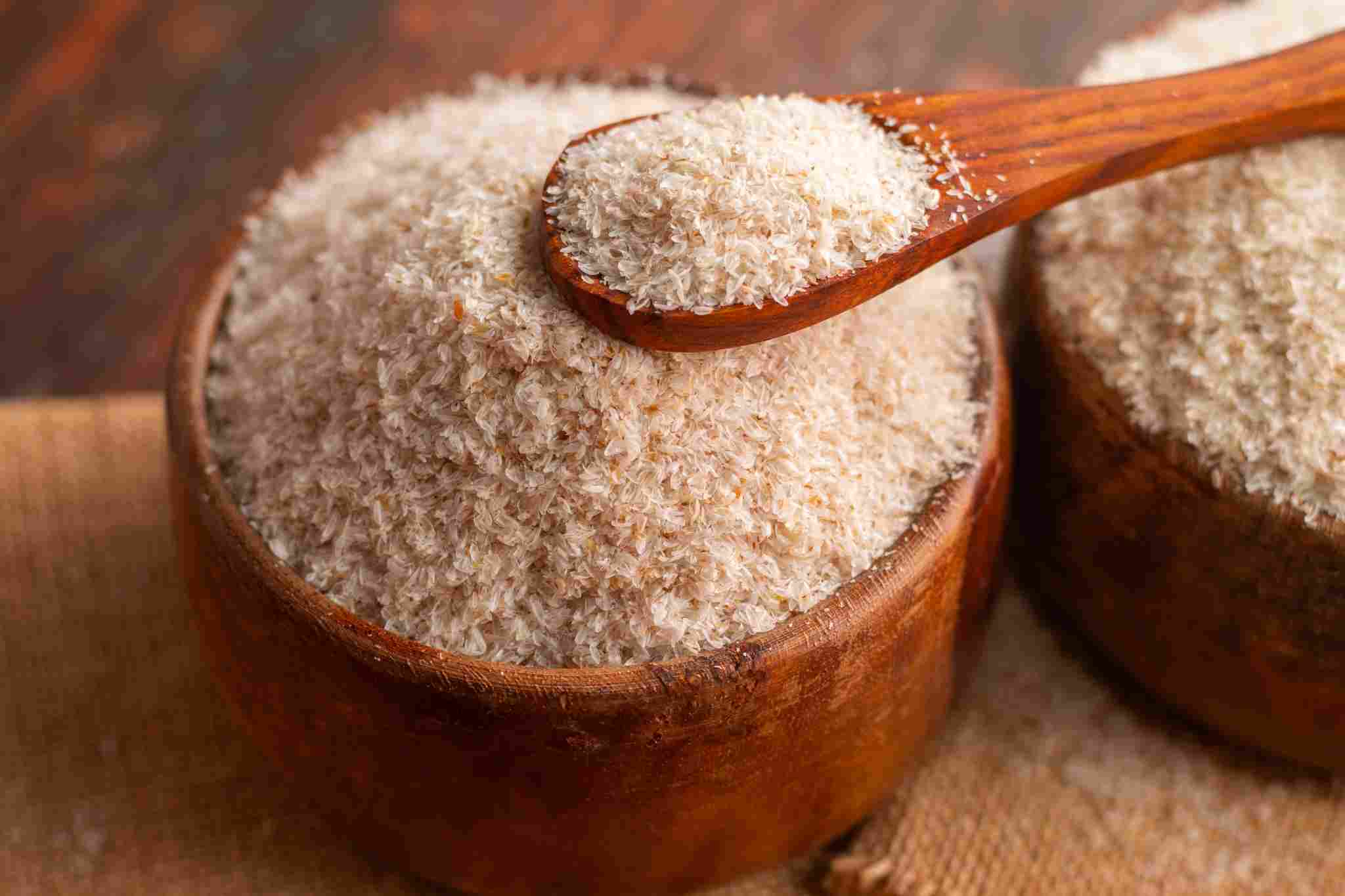Are you unknowingly jeopardizing your health with your daily fiber supplement? The truth about psyllium husk and its potential cancer warning is more complex than you might think. Often touted for its digestive benefits, psyllium husk, a seemingly innocuous fiber supplement, has found itself at the center of a health controversy due to cancer warnings appearing on some brands. This article aims to dissect the science behind these warnings, explore the potential risks and benefits, and empower you with the knowledge to make informed choices about your health.
The presence of a cancer warning on certain psyllium husk products is a direct result of potential contamination with heavy metals, primarily lead. Our registered dietitians (RDs) and research teams have been investigating the reasons behind these warnings, revealing that the source of contamination often lies in the soil where the psyllium husk is grown. Because psyllium husk is derived from the outer covering of the psyllium seed, it's particularly susceptible to absorbing environmental toxins like lead during the growth process. Factors such as soil composition, fertilizer use, and geographical location can all contribute to the level of lead present in the final product. This issue isn't unique to psyllium husk; many plant-based products can contain trace amounts of heavy metals due to environmental exposure. However, California's Proposition 65 requires clear warnings on products that expose consumers to chemicals known to cause cancer, birth defects, or other reproductive harm, even at very low levels, which is why you may see this warning on some psyllium husk supplements.
| Aspect | Details |
|---|---|
| Botanical Name | Plantago ovata |
| Origin | Primarily India, also cultivated in other regions like the Mediterranean and parts of North America. |
| Part Used | Seed husk (outer covering of the seed) |
| Main Components | Soluble fiber (primarily xylose, arabinose, and galacturonic acid), small amounts of insoluble fiber. |
| Primary Uses | Bulk-forming laxative, cholesterol reduction, blood sugar control, prebiotic for gut health. |
| Mechanism of Action | Absorbs water in the gut, forming a gel-like substance that adds bulk to the stool, promoting regular bowel movements. Also binds to cholesterol in the digestive tract, reducing its absorption. |
| Potential Contaminants | Heavy metals (lead, arsenic, cadmium), pesticides, microbial contaminants. |
| Regulatory Status | Generally Recognized as Safe (GRAS) by the FDA when used as intended. However, individual products are not subject to pre-market approval, so quality and safety can vary. |
| Cancer Warning (California Prop 65) | Triggered by the presence of lead above a certain threshold. The warning indicates that the product could expose you to lead, a chemical known to cause cancer and reproductive harm. |
| Quality Control | Look for brands that test their products for heavy metals and other contaminants. Third-party certifications (e.g., NSF, USP) can indicate that a product has been independently tested for quality and purity. |
| Website Reference | Mayo Clinic - Psyllium |
It's crucial to acknowledge that while the psyllium husk cancer warning raises valid concerns, numerous studies point to the potential health benefits of including psyllium husk in your diet. For instance, research has consistently demonstrated that regular psyllium husk supplementation can significantly lower the risk of colon cancer. Furthermore, an expansive clinical trial revealed that it may also play a role in reducing the risk of breast cancer. This apparent contradiction highlights the complexity of assessing the overall health impact of a supplement. The benefits of psyllium husk, stemming from its high soluble fiber content, are well-documented. Soluble fiber is known to lower cholesterol levels, contributing to cardiovascular health. Moreover, dietary fiber, in general, has been linked to a reduced risk of developing various types of cancer. This creates a delicate balancing act: weighing the potential risks of lead exposure against the established benefits of fiber intake.
- Kannada Movies Highest Grossing Films Movierulz More
- Movierulz Latest Movie Reviews News More Year Find Out
The reality is that many foods and supplements contain trace amounts of substances that could be harmful at high concentrations. The key lies in understanding the levels of exposure and making informed choices. The presence of a Proposition 65 warning doesn't automatically render a product dangerous. It simply signifies that the product contains a chemical known to the state of California to cause cancer or reproductive harm above a certain threshold. The critical question is whether the level of lead present in the psyllium husk poses a significant health risk. The consensus among health professionals is that the benefits of psyllium husk often outweigh the risks, particularly when sourced from reputable brands that prioritize quality control and testing.
So, how do you navigate this complex landscape and ensure you're making the safest choice possible? The first step is to choose psyllium husk supplements from reputable brands that are transparent about their sourcing and testing practices. Look for products that have been tested for heavy metals and other contaminants. Third-party certifications, such as those from NSF International or USP, can provide an extra layer of assurance that the product has been independently evaluated for quality and purity. These certifications indicate that the product meets specific standards for identity, potency, and purity, including limits on contaminants like heavy metals. In addition to choosing high-quality supplements, it's also essential to be mindful of your overall dietary intake of potential contaminants. Eating a varied diet rich in fruits, vegetables, and whole grains can help minimize your exposure to any single source of heavy metals.
Psyllium husk is a type of soluble fiber extracted from Plantago ovata, an herb primarily grown in India. Specifically, it is the outer covering of the plant’s seeds. This soluble fiber works by absorbing water in the digestive tract, forming a gel-like substance that adds bulk to the stool and promotes regular bowel movements. This bulk-forming action can also help to relieve constipation and improve overall digestive health. Beyond its digestive benefits, psyllium husk has been shown to have a positive impact on cholesterol levels. By binding to cholesterol in the digestive tract, it can help to reduce the absorption of cholesterol into the bloodstream, thereby lowering LDL ("bad") cholesterol levels. This, in turn, can contribute to a reduced risk of heart disease. Furthermore, psyllium husk may also play a role in regulating blood sugar levels, particularly in individuals with diabetes. The soluble fiber can slow down the absorption of sugar from the digestive tract, preventing spikes in blood sugar levels after meals.
It's important to use psyllium husk supplements correctly to maximize their benefits and minimize any potential side effects. Start with a small dose, such as one teaspoon per day, and gradually increase the dose as needed. It's crucial to drink plenty of water when taking psyllium husk, as it absorbs water and can cause constipation if not taken with sufficient fluids. Aim for at least eight glasses of water per day. Psyllium husk can be mixed with water, juice, or smoothies. Some people also incorporate it into baking recipes to increase the fiber content of their baked goods. While psyllium husk is generally safe for most people, it can cause some side effects, such as bloating, gas, and abdominal cramping, particularly when first starting to take it. These side effects can usually be minimized by starting with a small dose and gradually increasing it over time. In rare cases, psyllium husk can cause allergic reactions, such as skin rashes, itching, or difficulty breathing. If you experience any of these symptoms, discontinue use and seek medical attention immediately.
The psyllium husk cancer warning serves as a reminder of the importance of product safety, consumer awareness, and robust regulatory standards. It underscores the need for manufacturers to prioritize quality control and testing to ensure that their products are free from harmful contaminants. It also highlights the role of consumers in making informed choices and demanding transparency from supplement companies. While psyllium husk offers a range of potential health benefits, it's essential to be aware of the potential risks and to take steps to minimize them. By choosing high-quality supplements, using them correctly, and staying informed about the latest research, you can reap the benefits of psyllium husk while minimizing your risk of exposure to harmful contaminants.
The topic of lead contamination in psyllium husk has been circulating in online communities, with many individuals sharing their concerns and experiences. A quick search on platforms like Reddit reveals numerous discussions about the importance of choosing reputable brands and paying attention to product labels. Some users have reported contacting supplement companies directly to inquire about their testing practices and heavy metal levels. Others have shared tips on how to minimize exposure to lead in their diet, such as washing fruits and vegetables thoroughly and avoiding certain types of cookware. These online discussions highlight the growing consumer awareness of product safety issues and the desire for more transparency from supplement manufacturers.
Despite the concerns surrounding lead contamination, the scientific evidence overwhelmingly supports the benefits of incorporating fiber, including psyllium husk, into a healthy diet. Fiber plays a crucial role in maintaining digestive health, regulating blood sugar levels, and reducing the risk of chronic diseases. The American Heart Association recommends that adults consume at least 25-30 grams of fiber per day, but many people fall short of this recommendation. Psyllium husk can be a convenient and effective way to increase your fiber intake and reap its associated health benefits. However, it's essential to weigh the potential risks and benefits and to make informed choices based on your individual health needs and preferences.
For individuals with pre-existing medical conditions, such as digestive disorders or kidney problems, it's particularly important to consult with a healthcare professional before taking psyllium husk supplements. Psyllium husk can interact with certain medications, such as digoxin and warfarin, and may not be suitable for everyone. A healthcare professional can assess your individual health status and determine whether psyllium husk is a safe and appropriate supplement for you. They can also provide guidance on the appropriate dosage and usage to minimize any potential side effects.
While psyllium husk is often praised for its digestive health benefits, it's important to be aware of the potential risks associated with excessive intake and inadequate hydration. Taking too much psyllium husk without drinking enough water can lead to constipation, bloating, and even intestinal blockage. It's crucial to follow the recommended dosage guidelines and to drink plenty of fluids when taking psyllium husk. If you experience any symptoms of constipation or discomfort, reduce your dose and increase your fluid intake. In rare cases, excessive psyllium husk intake can interfere with the absorption of certain nutrients, such as iron and calcium. To minimize this risk, it's best to take psyllium husk separately from meals and other supplements.
The World Cancer Research Fund and the American Institute for Cancer Research (WCRF/AICR) have conducted extensive research on the relationship between diet and cancer risk. While their 2007 report did not establish any convincing dietary risk factors for pancreatic cancer, they did acknowledge the potential association between dietary fiber intake and pancreatic cancer risk. Further research is needed to fully understand the complex interplay between fiber intake and cancer development. However, the existing evidence suggests that a diet rich in fiber, including psyllium husk, can play a protective role against various types of cancer. It's important to note that no single food or supplement can guarantee cancer prevention. A healthy lifestyle that includes a balanced diet, regular exercise, and avoidance of tobacco and excessive alcohol consumption is essential for reducing your overall cancer risk.
While much of the focus is on the potential for lead contamination, it's also important to be aware of other potential contaminants that may be present in psyllium husk supplements. These contaminants can include pesticides, heavy metals (such as arsenic and cadmium), and microbial contaminants (such as bacteria and fungi). Choosing high-quality supplements from reputable brands that test their products for these contaminants can help to minimize your risk of exposure. Look for products that have been certified by third-party organizations, such as NSF International or USP, which set standards for product quality and purity.
A recent study found that approximately 3.7% of women used a prebiotic supplement containing psyllium, the major fiber type. Interestingly, the study found no association between the use of any prebiotic supplement and the risk of colorectal cancer or mortality. This suggests that while psyllium husk can offer a range of potential health benefits, it's not a magic bullet for cancer prevention. A comprehensive approach to health that includes a balanced diet, regular exercise, and avoidance of known risk factors is essential for reducing your overall cancer risk.
Consuming this product can expose you to chemicals including [chemical name] which is known to the state of California to cause cancer, birth defects or other reproductive harm. This warning, often found on psyllium husk products, can be alarming. However, it's important to understand the context behind the warning and to make informed choices based on your individual health needs and preferences. By choosing high-quality supplements, using them correctly, and staying informed about the latest research, you can reap the benefits of psyllium husk while minimizing your risk of exposure to harmful contaminants.
In conclusion, the psyllium husk cancer warning highlights the complex interplay between product safety, consumer health, and regulatory standards. While the potential for lead contamination is a valid concern, the benefits of psyllium husk often outweigh the risks, particularly when sourced from reputable brands that prioritize quality control and testing. By staying informed, making informed choices, and consulting with a healthcare professional, you can confidently incorporate psyllium husk into your diet and reap its associated health benefits.
Used for centuries as a colon cleanser, psyllium seed husks' soluble fiber content makes them a valuable nutritional tool for cardiovascular health and healthy cholesterol already within the normal range when used as part of a diet low in saturated fat. Deliver bowel regularity and cardiovascular support with swanson psyllium husks!
If you are experiencing serious medical symptoms, seek emergency treatment immediately.



Detail Author:
- Name : Greg Satterfield
- Username : konopelski.kristopher
- Email : wisoky.oliver@hotmail.com
- Birthdate : 1990-12-23
- Address : 51339 Otho Harbors Port Francescachester, MA 65002-7965
- Phone : (276) 244-9221
- Company : Sporer-Bradtke
- Job : Biologist
- Bio : Eos autem quia repellendus eos ad. Rerum sunt explicabo error nulla id. Vel facilis aut et maiores et delectus doloribus. Consequatur velit ipsum nemo aliquid neque.
Socials
facebook:
- url : https://facebook.com/chrisquitzon
- username : chrisquitzon
- bio : Tempora porro molestiae impedit excepturi similique sed animi.
- followers : 6468
- following : 2512
twitter:
- url : https://twitter.com/quitzon1995
- username : quitzon1995
- bio : Iste ipsa eos saepe incidunt et maiores. Vero placeat cumque rerum expedita sapiente in tempora. Illum itaque culpa et.
- followers : 3861
- following : 1323
linkedin:
- url : https://linkedin.com/in/chris.quitzon
- username : chris.quitzon
- bio : Odit debitis placeat eveniet et a et vero fugit.
- followers : 219
- following : 1447